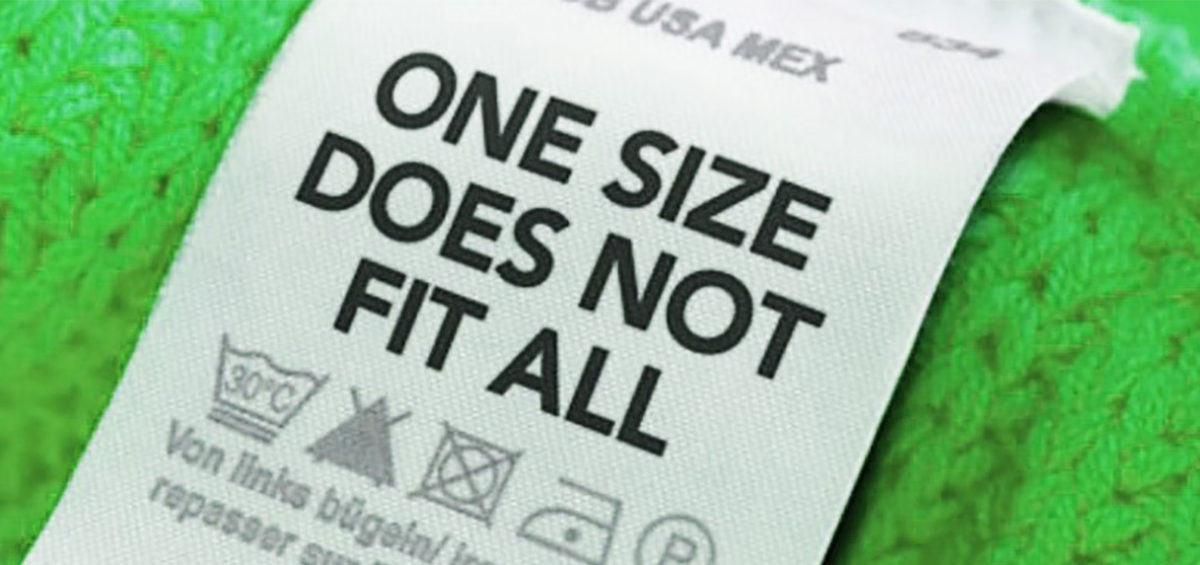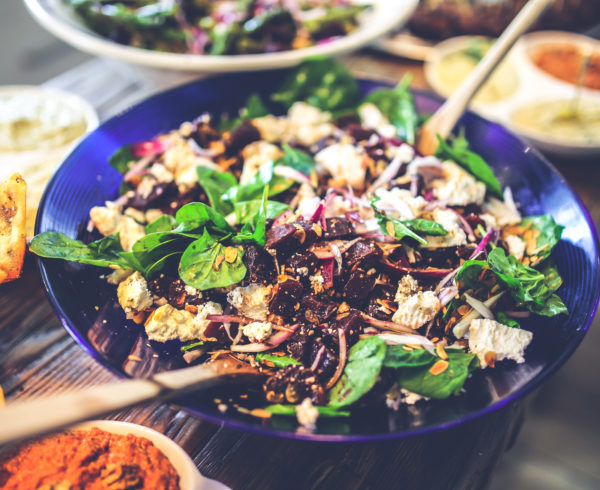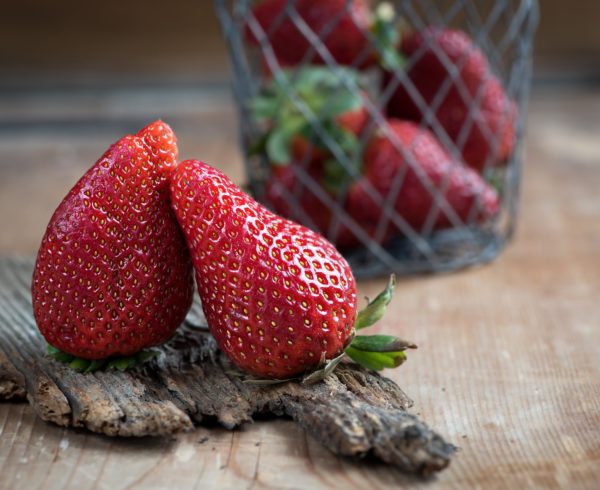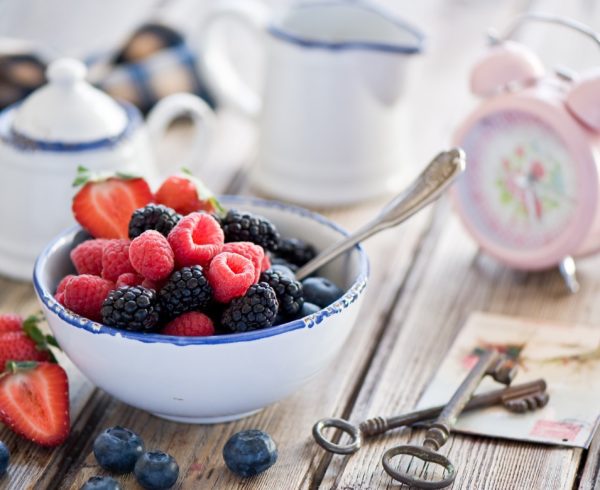Everybody is different which means that when it comes to diet and nutrition what may work for one person does not necessarily work for another.
We all know somebody who can eat all they like and it seems they never gain weight and there are others who can eat exactly the same food and it goes straight to their hips and belly.
The reason for this is that everybody responds differently to foods.
It is important that our diet contains the correct amount of proteins, carbohydrates and healthy fats. By understanding how your body responds to food, you can start eating MORE of the foods that work well with your body and finally stop dieting and starving yourself.
The key to obtaining the results you desire is to get your metabolism working correctly.
So what is metabolism?
It is the rate at which your body utilizes food for energy, cellular growth and maintenance. In simple terms, it is the speed that your body burns the food you eat.
If you have a fast metabolism you likely have no trouble keeping thin, you are always hungry and may even have trouble putting weight (both fat and lean muscle).
If you have a slow metabolism you can eat very little, perhaps as little as one meal a day and stay the same or even gain weight.
The key to taking control of the way your body looks is to have a basic understanding of the chemistry of food. Don’t worry it’s not difficult to follow!!
As far as your body is concerned there are 3 different categories of food.:
Carbohydrates
These are foods that break down into sugar in your body. This sugar is important and is used to fuel your muscles and your brain.
Types of carbohydrates include fruits, vegetables, and grains like the wheat in bread and pasta.
Proteins
These are essential for maintaining muscle tissue, hair and vital organs. Proteins can also be used as fuel.
Primary sources of proteins are animal sources such as meat, fish, eggs.
Fat
Fat contains elements essential to control our metabolic rate and other vital systems in our body.
Fats can be found in a variety of foods including animal fat, vegetables, nuts, and dairy.
Each of these macronutrients plays an integral role in a healthy nutrition plan.
So let’s now look at each one individually so you can understand its role in keeping your body fit and healthy.
Carbohydrates
Carbohydrates or carbs are essential in order to keep your body functioning well.
When carbohydrates are consumed they are broken down by the body into a sugar called glucose. Glucose is what fuels the muscles and the brain.
There are two types of Carbohydrates, the basic difference being how quickly they are broken down and converted into sugar in your body.
The two types are:
-
Simple
Simple or ‘fast’ carbs are converted to sugar very quickly y your body. Sweet foods like sugar, sweets, honey, white bread and most sweet fruits are all examples of simple carbs
-
Complex
Complex carbs are converted to simple sugars much more slowly by your body. Examples of complex carbs are potatoes, sweet potatoes, rice, wheat and other grains.
Many foods such as milk contain fats, protein and carbohydrates.
Simple Carbohydrates
A diet rich in simple carbs can contribute to weight gain.
Such foods such as sugar, fruit juice, soft drinks and any other high-sugar food cause your body to release a hormone called insulin.
A quick or dramatic increase in insulin in your body can significantly slow or stall the breakdown of fats in your body.
Insulin
Insulin is a hormone that regulates blood sugar in your body.
When there are high levels of this hormone in your blood it causes a chemical reaction which tells your body to store the calories you eat instead of burning them off.
High levels of insulin over a long period of time can slow your metabolism down so dramatically that it will actually prevent your body from using stored fat for energy. This means that too many simple sugars can effectively stop you losing weight if that is one of your fitness goals.
Most foods that taste sweet are generally simple carbs and have the ability to ‘spike’ insulin levels. They include many fruits like cherries, raisins and fruit juices. Your body treats these foods exactly the same as the sugar found in fizzy drinks and chocolate bars and sweets.
Simple sugars do play a part in nutrition because they contain essential vitamins and minerals and can help restore proper blood sugar levels quickly if you suffer from low blood sugar (hypoglycemia).
I would suggest that if you are looking to lose weight then you reduce the amounts of simple sugars you consume. Complex carbs are a much better choice.
Complex carbohydrates
The types of carbohydrates most beneficial for weight loss purposes are fresh whole foods such as potatoes, sweet potatoes, rice and oatmeal (porridge oats). Less beneficial are
Less beneficial are pastas, beans and corn.
Remember that all carbs eventually turn to sugar in your body. Sugar triggers the release of insulin. The faster they turn to sugar in your body, the greater the risk of an insulin spike.
To keep your blood sugar at a relatively even level it is best to consume your carbs with another type of food – the best choice is protein. This slows down the conversion of carbs to sugar.
Processed Carbs
Examples of processed carbs are bread and pasta. These processed carbs started as good whole grains. They are then ground down to their purest form. During this grinding process, all the beneficial fibre and other components that would slow down the conversion to sugar are removed.
If you think about it, to make a bit of flour you start with a LOT of grain. Then you grind and grind this grain down into flour. This flour may then make about 2-3 ounces of pasta. It is still the same amount of carbohydrate but it is concentrated into several bites of pasta.
It takes a lot of work for your body to process all of this grain plus it contains a lot of carbs that once converted to sugar in your blood stream will spike your insulin levels. This slows even the fastest metabolism and is why you often feel sluggish after eating a big plate of pasta.
Vegetables
Green vegetables are also carbohydrates but they contain very few calories.
They also contain a LOT of fibre so they have very little effect on your metabolism.
Experts suggest that you eat as many greens as possible. They fill you up and are your body’s main source of vitamins, minerals and fibre.
Greens are leafy vegetables such as spinach, lettuce, watercress, mustard greens, kale and sprouts. Other important vegetables you should look to include in your nutrition are…
- broccoli,
- cauliflower,
- tomatoes,
- onions,
- mushrooms,
- asparagus, zuccini,
- bell peppers (all colours – red, green, yellow, orange),
- cucumbers,
- green beans,
- squash,
- pumpkin,
- carrot,
- turnip.
The dangers of a Low Carbohydrate Diet
Unfortunately, it seems that low-carbs diets are still all the rage.
When people go on high-protein diets they do lose weight and sometimes very quickly. However, eliminating carbs is not healthy and can be dangerous.
Remember, that carbohydrates are our main source of energy so be reducing our energy levels we end up lowering our immune system and we end up getting run-down and fall ill.
Without an adequate supply of carbs, the body will turn to its lean muscle tissue for a source of energy, and you will lose muscle instead of fat.
And remember muscle helps to burn fat so the less muscle you have the less fat your body is able to burn.
If you don’t eat sufficient carbohydrates you can easily reach the point where your system will shut down; you may feel faint, weak, and you could pass out! Remember your brain’s sole source of fuel is glucose.
Where does glucose come from?
That’s right… carbs!!
At the end of the day,your body NEEDS carbs. Don’t let anyone tell you otherwise!
Protein
Protein is essential for the body to maintain muscle tissue, hair and vital organs. It can also be used as fuel.
The most common source of protein comes from animals – chicken, fish, meat, eggs, etc.
There are non-animal sources of protein as well such as soy, legumes, nuts and combinations of partial proteins derived from plants.
The easiest way to get your protein is from animal sources.
It is harder to get adequate amounts of lean protein from vegetarian sources.
However, you should be concerned with the amount of fat contained in animal proteins.
Egg whites, skinless turkey, skinless chicken breast and many types of fish are very high in protein and are extremely low in fat. These make them ideal sources of protein.
Other sources such as red meat have a higher fat content and should be consumed less frequently.
Fats
You body needs fat in order for it to function properly, but not to the degree that most of us consume it. You can get all of your fat needs from very lean red and white meats and fish.
Too much fat can be bad for you and as such this is one food group that you should keep to a minimum particularly if you are looking to lose body fat.
It takes your body a long time for your body to metabolize fat (i.e. turn it into fuel) so there is a greater chance of it being stored… as fat.
Even more importantly, even though your body requires significant amounts of protein to support lean muscle tissue your body only needs very small amounts of fat to keep itself healthy.
Good fats and bad fats
You’ve probably heard the expression good fats and bad fats.
These terms refer to saturated fat (which is usually termed bad fat) and unsaturated fat (good fat).
It is important to consume more healthy fats from sources such as olive oil, oily fish, avocados and try to reduce the amount of margarine, butter and fat from meat.
As far as weight loss is concerned, fat is still fat and as it contains a lot of calories it is important to reduce the levels you eat.
Vitamins and minerals
It is always a good idea to supplement your diet with a high-quality multivitamin supplement, particularly if you are restricting your nutrition in any way.
As mentioned earlier you should get the majority of your vitamins and minerals from the fruit and vegetables you eat.
Unfortunately, through the poorer soil quality we have nowadays and other conditions a lot of the goodness of vegetables can be lost before we eat them which is why experts suggest supplementing your diet with a high strength multivitamin.
Fat Loss Secrets
One of the real keys to getting fast results on a fat loss program is to reduce the amount of sodium (salt) you consume.
High levels of sodium is found in most processed and packaged foods which is why experts strongly recommend that you eat natural wholesome foods rather than packet or microwave meals.
Salt makes your body retain water which fills your cells up and makes you heavy.
Retaining water will also cause your metabolism to slow down.
To keep it moving you need a steady flow of fluids in and out of your body. To slow the flow out is like putting a potato in the exhaust pipe of a car, it will dramatically reduce the efficiency of the engine.
Water retention is a major problem, particularly for many women. This is due to hormones and their menstrual cycle.
Reduce the levels of salt in your diet and you will quickly notice an improvement in water retention.
The best way to do this is to reduce the amount of processed food you eat and replace this with fresh homemade foods .
Another benefit of reducing salt in your diet is that it will reduce your blood pressure.
People with high blood pressure find that after several weeks of eating fresh homemade food their blood pressure drops quite significantly.
One of the most important elements of any weight loss program or healthy nutrition is drinking lots of water.
Water is your body’s main constituent.
You can live a lot longer without food than you can without water. Drinking a lot of water will help your body eliminate water retention and help burn fat.
In the same way your body holds onto fat if you starve, it holds onto water if you are not drinking enough.
Water is the way your body eliminates the waste created in the process of metabolising fat. Therefore to keep your metabolism running high, drink plenty of water, about 8-12 glasses a day (2-3 litres a day).
Water is the best drink to consume during the day but other beverages you can consume are green tea, iced tea, black coffee, tea and herbal tea.
Try to refrain from drinking diet pops as these are high in sodium and are full of chemicals.
For further information on boosting your metabolism, fat loss, improving health and functional fitness, call Steve and team 9309 2532.






Recent Comments